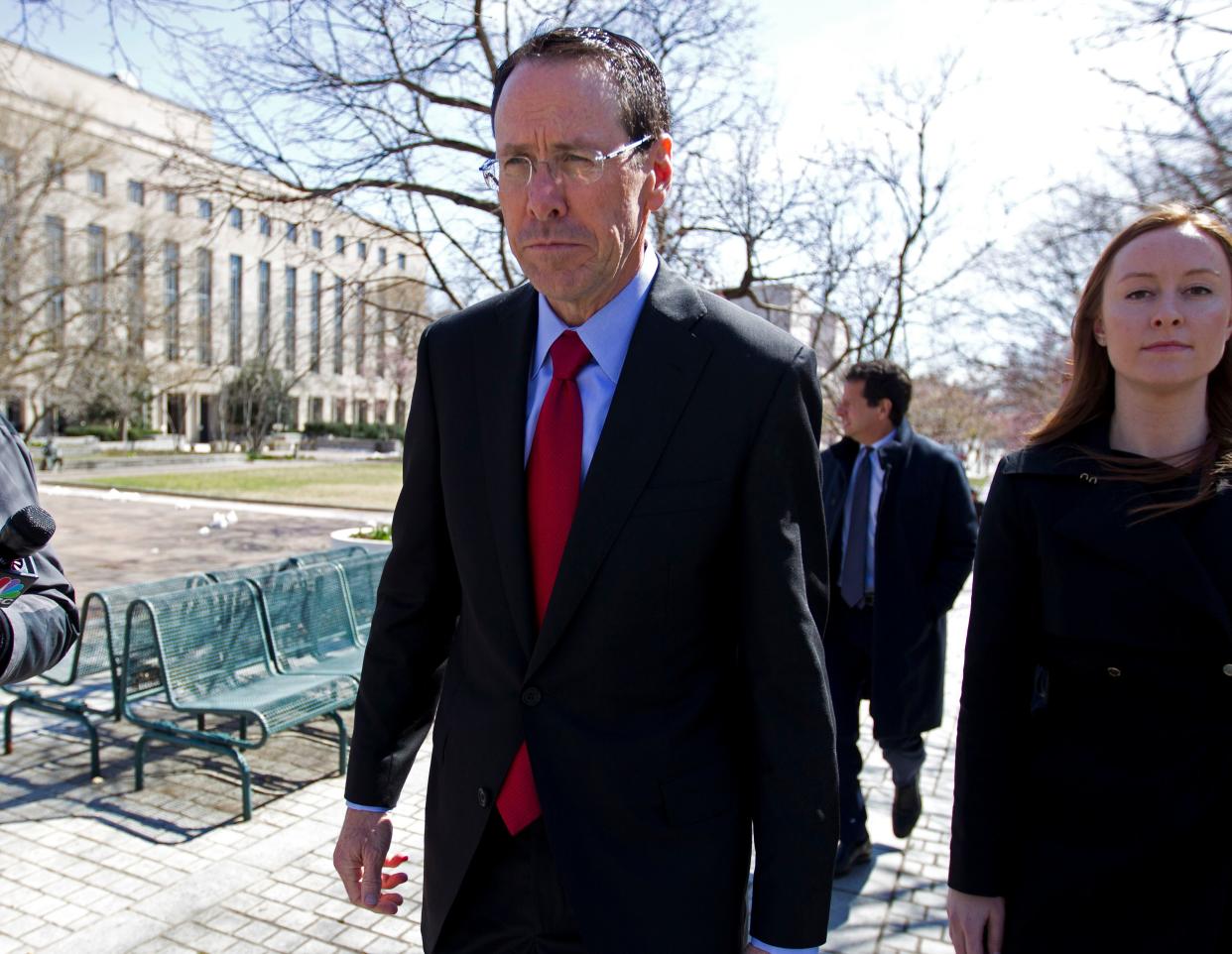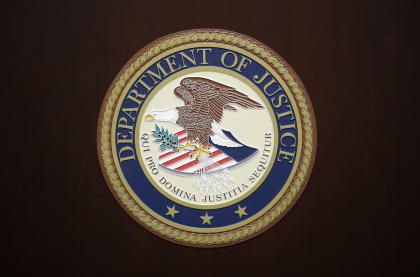Will AT&T Get To Keep WarnerMedia? Oral Arguments In Appeals Court Will Help Determine The Answer

More than a year after government regulators sued AT&T to block the Time Warner merger, the media business trial of the century reaches a pivotal moment Thursday in Washington with oral arguments in the government’s appeal.
Golden Globe nomination reactions and the usual end-of-year scramble will be preoccupying the industry, but the case is being closely tracked in the corridors of power. Its outcome — which won’t come right after the arguments, but early in 2019 — will have an immediate effect on thousands of workers and millions of consumers.
The Department of Justice and AT&T will be given 30 minutes to deliver oral arguments in the government’s appeal of the landmark decision by U.S. District Court Judge Richard J. Leon. Last June, Leon rejected the DOJ’s claim that the $81 billion merger would harm rival companies and consumers by combining vast programming and distribution assets, going so far as to advise the plaintiffs not to file an appeal.
The DOJ ignored Leon’s recommendation, insisting in its appeal later in the summer that Leon got it wrong. In October, in one of several briefs filed by both parties, DOJ antitrust chief Makan Delrahim said Leon made several “economic and logical errors.” AT&T responded in its own brief that “a wealth of evidence at trial” refuted the government’s claims” and “provide no basis for overturning the district court’s finding on this point.”
Unlike the initial trial, which unfolded over several weeks and featured witness lists of dozens and testimony by top executives, the action at the appellate level occurs mostly in writing. Thursday’s proceeding will not feature witnesses, though in an unusual move the court granted 27 antitrust scholars the right to speak for a total of 10 minutes to offer opinions sympathetic to the government’s case.
The venue is the U.S. Court of Appeals for the D.C. Circuit — which is, as Beltway denizens and political junkies know, the alma mater of newly minted Supreme Court Judge Brett Kavanaugh. After the arguments (plus brief follow-ups as well as the academic experts’ minutes), the hearing will be adjourned and the judges will take several weeks to return their decision.
As a condition of closing the deal in June, AT&T agreed to keep Turner Broadcasting completely walled off from DirecTV and other distribution assets through February 28 pending a prospective appeal. Were the government to somehow prevail, WarnerMedia could then be more easily unwound from the rest of AT&T.
Turner’s sister network HBO has gotten into a carriage fight this fall with Dish Network, which didn’t hesitate to invoke the government lawsuit in its fulminations about what it called “an anti-competitive play” by AT&T. HBO has been dark on Dish for five weeks, but the impasse will not be able to be considered at the appellate level. DOJ lawyers could well mention it in their argument.
Speaking Tuesday at the UBS Media and Communications Conference in New York, AT&T CEO Randall Stephenson reiterated confidence in AT&T’s case. Leon ““wrote a pretty tight order,” he said. “We feel like we have an order that can stand up.”
Antitrust experts don’t have many precedents to use when analyzing the case. The last attempt to block a so-called “vertical” merger that doesn’t blend overlapping parts came in the 1970s. The government hasn’t gone this hard at a tech or media company since its attempt to break up Microsoft in the late 1990s. The lessons from that case — a mixed result but one generally seen as a victory for the government — offer few direct parallels with the case against AT&T.

Most trial watchers expect AT&T to prevail. The three-judge panel consists of Judges Judith W. Rogers, Robert L. Wilkins and David B. Sentelle (appointed by Bill Clinton, Barack Obama and Ronald Reagan, respectively). Some analysts have pointed out their majority-Democrat bona fides, which could lead them to have an ant-corporate-consolidation bias.
In their decision, they have a range of options, including remanding the case back to Leon, who would then review it again. While it is remote, there is technically a chance that the case could eventually make its way to the Supreme Court, where the political aspect could be heightened given Kavanaugh’s appointment cemented a Republican majority on the bench.
Delrahim, who was appointed by President Donald Trump just weeks before filing the lawsuit, has been suspected in some corners of doing Trump’s bidding by making life difficult on the parent company of CNN, with whom he has been at war. Judge Leon barred any discovery pertaining to the perceived anti-CNN agenda, so it did not formally surface in the trial. Trump spoke out numerous times against the AT&T-Time Warner deal, as both candidate and president. By contrast, when Disney first proposed acquiring most of 21st Century Fox, a horizontal deal that will result in thousands of layoffs, he called his longtime friend Rupert Murdoch to offer his congratulations.
Related stories
AT&T Gains Upper Hand On DOJ In Appeals Court Arguments Of Lawsuit Over Time Warner Deal
George W. Bush Breaks Down While Eulogizing Father At State Funeral
Jon Meacham Schools Donald Trump While Eulogizing President George H.W. Bush
Get more from Deadline.com: Follow us on Twitter, Facebook, Newsletter